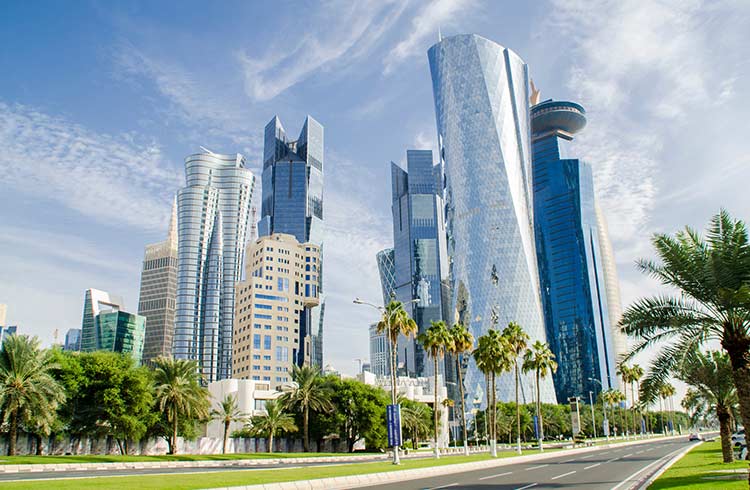Transport in Qatar: Tips for Traveling Around Safely
Qatar has a high rate of road-related deaths. Find out how to get around the country safely, from desert driving to city streets.
 Photo © Getty Images/Fauzan Fitria / EyeEm
Photo © Getty Images/Fauzan Fitria / EyeEm
Navigating Qatar can be a challenge. Part of the problem is the large number of road projects, speeding and frequent roundabouts. The good news is that conditions have improved.
When it comes to local drivers, there seems to be a blatant disregard for the rules of the road.
Since the Qatari government enforced stricter traffic rules a few years back, things are getting better. Roundabouts which have created accident black spots or contributed to congestion have been removed.
While the mandated speed limit is 120km/ph on highways, drivers fly up to 150km/ph. Like in other parts of the world, slow drivers – or drivers going the speed limit – should keep right to let speeders pass. It's common for Qatari drivers to be aggressive and tailgate you until you move to the slow lane.
Even if road rage consumes you, don't instigate fights with other drivers. Authorities will arrest people, including travellers, for starting fights with other drivers. Foreigners have reported Qatari drivers filing police reports against them that led to overnight stints in jail. Also, anyone who causes an accident that leads to injuries is almost guaranteed to spend time in jail. Anyone involved in an accident should stay near their car and remain calm.
Travellers report various adventures on the road, including seeing hitchhikers more commonly than they would in other countries.
Public transport is limited in Qatar. The bus system only started in 2005, so those who don't want to drive must take taxis, which thankfully, are fairly cheap. Limousines are another option, but they'll be more expensive. Hire car options such as Uber and Careem also operate in Qatar.
Desert driving
Rural roads carry their own risks. It's very common to see four wheel drives navigating the desert terrain. You should never speed in these areas, as soft sand and sabkha near the coast and middle of the country can cause problems. Anyone going off road should bring the right supplies to be self-sufficient and be able to self-rescue.
This area is naturally remote and won't be populated by many passing cars, so help will be slow in coming if you encounter trouble.
It's smart to store water and food in the vehicle as well in case you get stranded.
Rural roads may be poorly maintained with few lights, and animals may walk in the street.
No matter your mode of transport, when travelling into the desert areas, you should go with a guide or someone else who knows the area and the conditions. It's common for tour groups to visit Khor Al Udeid, Sealine Beach and Fuwairat. Each location has sand dunes you can drive up and down, and various tour companies organize guided trips to this area.
Other hazards of the desert areas include sandstorms and dust storms. Haze also appears in various areas.
Prepare for very high temperatures, which can climb to more than 50°C. Take the heat into account, too, when doing any outdoor activity in Qatar to prevent getting heat exhaustion or falling ill.
Simple and flexible travel insurance
You can buy at home or while traveling, and claim online from anywhere in the world. With 150+ adventure activities covered and 24/7 emergency assistance.
Get a quote
No Comments